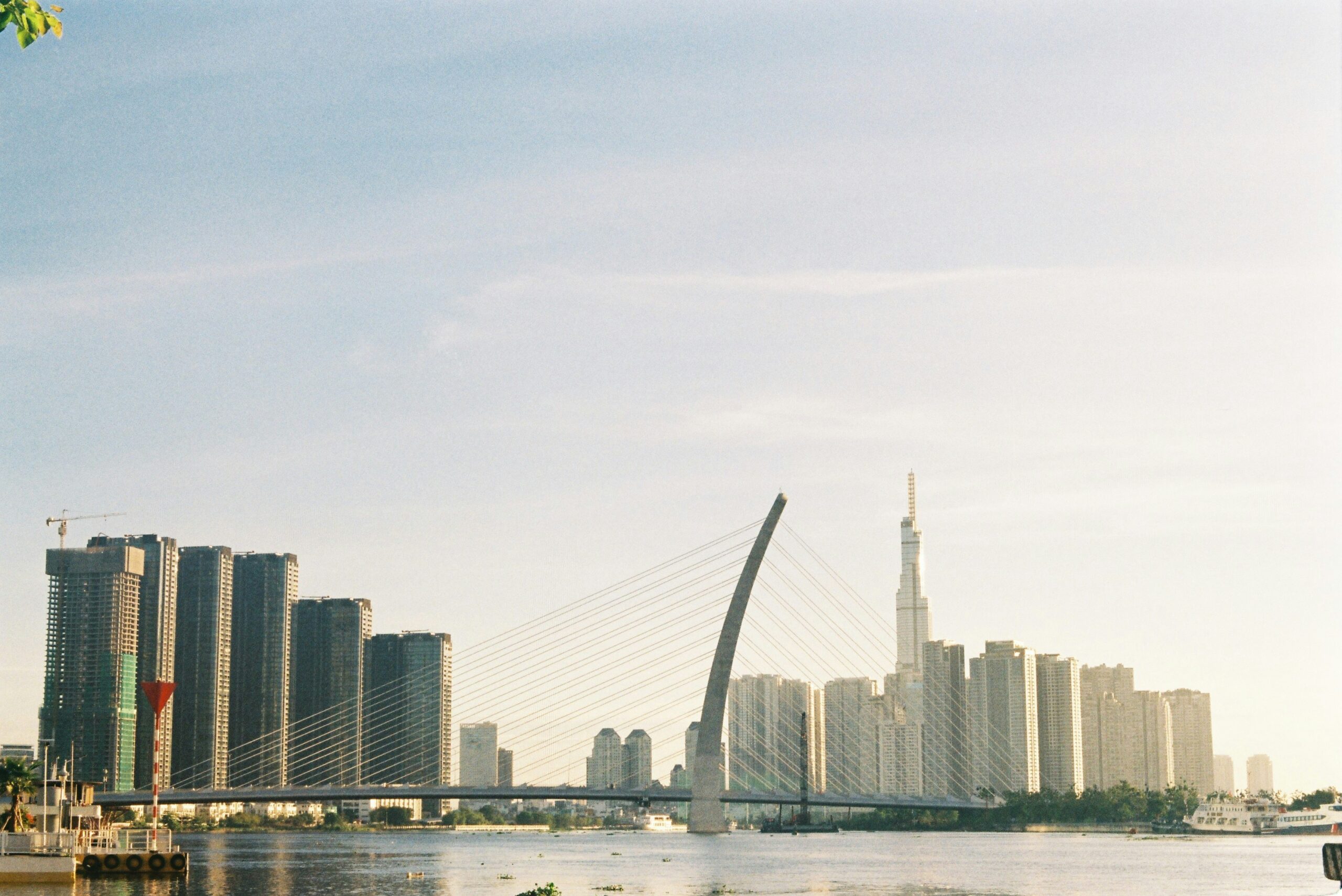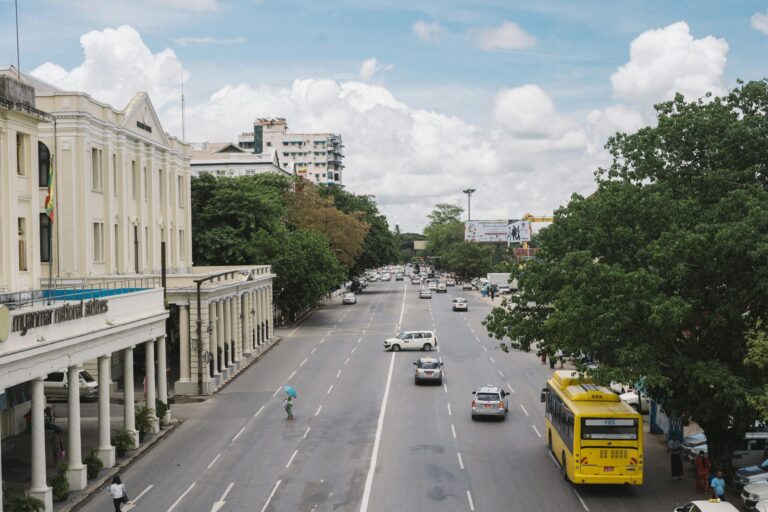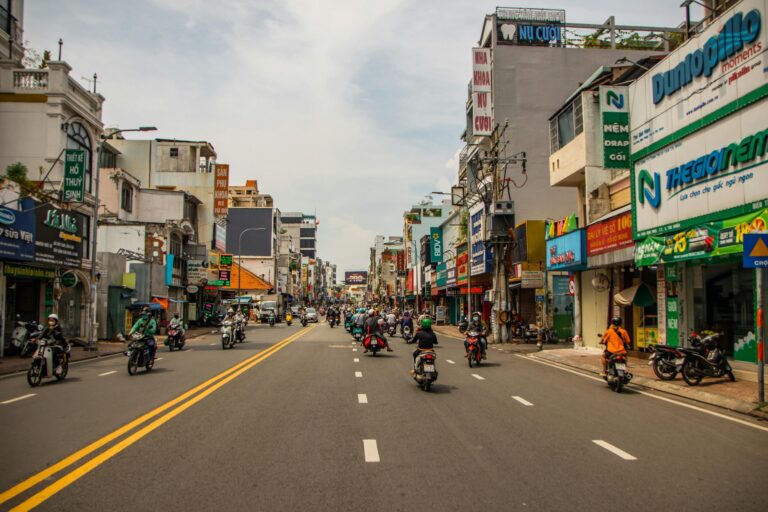Vietnam Country Overview

- GDP Growth: 5.7% (Q1 2025)
- Foreign Direct Investment (FDI): $11.8B YTD, led by manufacturing and electronics
- VN-Index: +12.4% YTD
- Inflation Rate: 3.2%
- Top Sectors: Logistics, green manufacturing, digital payments
Vietnam is one of Southeast Asia’s most dynamic economies, with strong GDP growth, a young population, and increasing openness to foreign investment. Investors are increasingly looking to Vietnam as an alternative to China for manufacturing, consumer markets, and frontier-market equity exposure.
For retail investors, there are several attractive options to gain exposure to Vietnam, but each one comes with pros and cons. They also come with different levels of accessibility. In this post, we explain how retail investors can gain access to Vietnam and benefit from the country’s rise.
Equities
The Vietnamese stock market offers amazing opportunities to invest in profitable and fast-growing companies. The challenge is that from outside of Vietnam, options are limited.
If you are based in Vietnam, it is possible to open a local brokerage account to access these stocks. Foreigners will need to open a specific type of bank account for investing purposes. This involves obtaining a local trading code and provide valid documentation when you open your account. This is true regardless of whether you are a resident of Vietnam. The good news is this process can be done from abroad. See here for a detailed explanation of this process or check out our video for an overview.
If you are based outside of Vietnam and do not want to go through the process of opening a local brokerage account, options are somewhat limited. You will only have access to ETFs that track Vietnamese indices. However, due to foreign ownership limits and other restrictions, these ETFs have historically not performed as well as the indices they track. Interested investors can look to Vietnam index trackers like VNM or VNAM. We made a video comparing these two.
In short, investing in Vietnamese stocks offers massive potential, but the downside is that you must have a local brokerage and bank account to do so. This can be a bit time consuming and tedious.
Real Estate
The Vietnamese property market is quite healthy, and it can be expected to grow in the coming years as the country continues to modernize.
As of 2024, foreigners are legally allowed to purchase property in Vietnam. They cannot own land, but they can own the buildings constructed on it, typically condominiums or apartments. However, only up to 30% of units in any one condo building can be sold to foreign buyers. Ownership of these properties is through a leasehold agreement (50-70 years) that is in principle extendable. Some banks will provide mortgages to foreigners, but the rates and conditions will differ compared to Vietnamese locals.
Ownership is structured as a 50-year leasehold, with a possible renewal. In practice, renewals are common, but there’s no guarantee. Foreigners may qualify for mortgages through Vietnamese banks, but interest rates tend to be higher and require stricter documentation than loans for local citizens.
Many foreign buyers pay in cash, especially in cities like Ho Chi Minh City, Da Nang, and Hanoi where presale developments are aggressively marketed overseas.
Startups
Vietnam is also home to a growing and dynamic startup scene. There are a number of opportunities for startup investments in fintech, education, and tech. The recent decade has seen a number of small companies take off and become incredibly profitable.
However, access to these companies outside of Vietnam are extremely limited. Much information comes through informal networks that require presence in the country. As of September 2025, there is no centralized platform for investing in these companies and accessing these opportunities. Thus, startup investments—while potentially profitable—are impractical for many investors.
That said, for someone who wants to spend time in Vietnam and put in the networking required to make relevant connections, the pay off can be big.
Lifestyle and Culture
Vietnam offers a unique mix of modern city life and traditional culture. Expats are commonly drawn to Vietnam for various reasons:
- Low cost of living – Comfortable urban living in Ho Chi Minh City or Hanoi for $800–1,200/month
- Fast internet + growing startup ecosystem
- Warm climate and great travel access across Southeast Asia
- Vibrant street food culture, with a growing coffee and international food scene
- English is increasingly spoken in business and hospitality, especially among younger Vietnamese (However, outside major cities, language barriers still exist, and local etiquette should be respected)
Compared to other places in Asia, Vietnam has much more of an up-and-coming feel. Many areas are gentrifying rapidly, and there is a wide array of dining and entertainment options. Vietnam is much more of a frontier and vibrant place that established economies like Japan or Singapore. It’s also a bit grittier and rough around the edges.
However, with an amazing food culture, rich history, ongoing modernization, and increasing transport infrastructure, Vietnam is an excellent option for people looking for an emerging Asian market that has a lot of room for growth and further change.
VinaEdge Take
Vietnam is one of the most compelling emerging markets in Asia. The country has favorable demographics, a growing middle class, and strategic positioning as an alternative to China. But the biggest challenge is access. Most serious exposure requires navigating Vietnam’s local systems, including language barriers, regulatory paperwork, and limits on foreign participation.
VinaEdge believes Vietnam is a high-potential market for investors who are willing to take the time to understand the rules and build a position slowly. If you’re looking for easy wins, Vietnam might be a bit challenging. But if you’re thinking in 5- to 10-year timelines, the fundamentals are hard to ignore.




